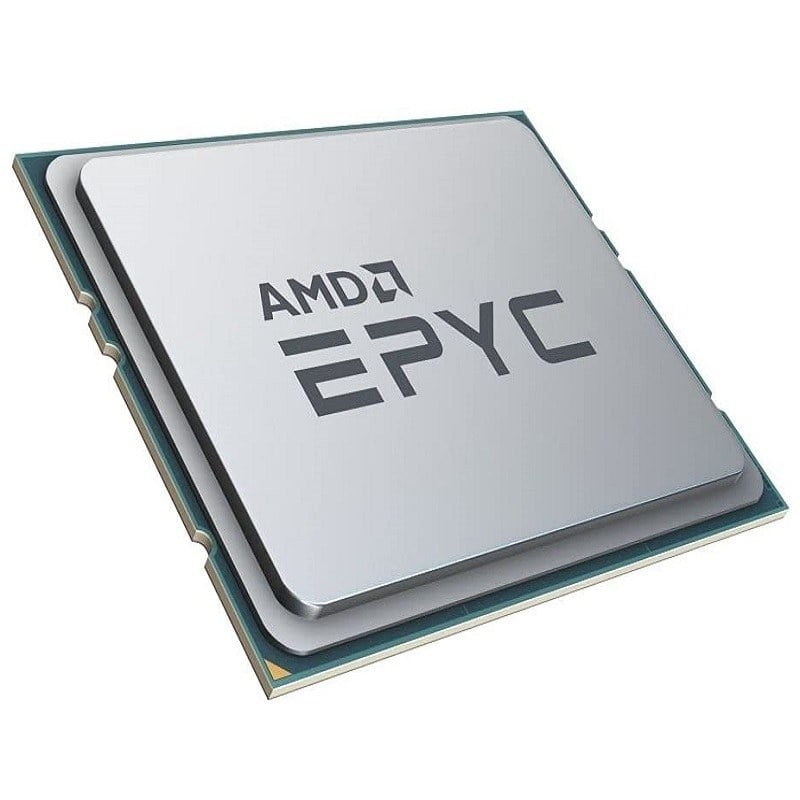Description
More Information on the HPE 100-000000038 Processors
In the realm of high-performance computing, processors play a pivotal role. One such powerhouse is the AMD 100-000000038 Epyc 7702, boasting remarkable specifications that make it a formidable contender in the CPU processor market.
The Technical Jargon2.0 Gigahertz (GHz) Clock Speed
Clock speed is a critical factor influencing a processor’s performance. The Epyc 7702 operates at an impressive 2.0 Gigahertz (GHz), indicating the number of cycles it can execute per second. This high clock speed contributes to faster data processing and improved system responsiveness.
64-Core Architecture
At the heart of the AMD 100-000000038, Epyc 7702 lies a cutting-edge 64-core architecture. This means that the processor is equipped with 64 individual processing units, allowing for parallel execution of tasks and significantly boosting overall performance.
256 Megabytes (MB) Processor Layer3 (L3) Cache
Cache memory is crucial for swift data access. The Epyc 7702 comes equipped with a substantial 256 Megabytes (MB) of Processor Layer3 (L3) Cache. This cache acts as a high-speed storage buffer, reducing data retrieval times and enhancing overall computational efficiency.
Socket Sp3 Compatibility
The processor is designed to fit into a Socket Sp3, which is a specific type of socket on the motherboard. This compatibility ensures seamless integration into systems that support Socket Sp3, providing users with flexibility in choosing or upgrading their hardware.
7nm Technology
The AMD 100-000000038 Epyc 7702 leverages advanced 7nm (nanometer) technology. This refers to the size of the transistors on the processor’s chip. Smaller transistors allow for more efficient power consumption and heat dissipation, contributing to improved energy efficiency and thermal performance.
Powerful 200w TDP (Thermal Design Power)
With a Thermal Design Power (TDP) of 200 watts, the Epyc 7702 is designed to handle demanding workloads without compromising on stability. The TDP reflects the maximum amount of heat the processor can generate under normal operation, and a higher TDP often corresponds to enhanced processing capabilities.
Use Cases and Applications
The AMD 100-000000038 Epyc 7702’s impressive specifications make it a go-to choice for a variety of applications.
Data Centers and Cloud Computing
The processor’s high core count and clock speed make it ideal for data centers and cloud computing environments where parallel processing and fast data access are paramount. It can handle virtualization, database management, and complex computational tasks with ease.
Scientific and Research Applications
In scientific research, simulations, and modeling, the Epyc 7702’s computational prowess shines. Its 64 cores and substantial cache enable researchers to crunch large datasets and run intricate simulations, accelerating scientific discovery.
Enterprise-level Computing
For enterprise-level computing tasks, such as large-scale database management, the Epyc 7702’s capabilities ensure smooth and efficient operations. Businesses can benefit from enhanced productivity and reduced processing times.
General Information About this AMD 100-000000038
- Manufacturer: AMD
- Model Number or SKU# 100-000000038
- Product Type: Epyc 64-core 2.0GHz
- Product Name: Processor
Technical InformationProcessor Power: 64 Cores for Enhanced Performance
- The heart of your system lies in its processor core. Imagine it as a team of 64 workers handling tasks simultaneously. This 64-core processor ensures that your computer can handle complex operations efficiently.
Clock Speed: Navigating at 2.0GHz
- Clock speed is like the pace at which your processor operates. Picture it as the speed of a vehicle. This processor cruises at 2.0GHz, meaning it can process 2 billion cycles per second. This speed ensures smooth and swift operations for your computer tasks.
Boosting Performance: Up to 3.35GHz
- Just like a turbo boost in a car, your processor can speed up when needed. With a max boost clock of up to 3.35GHz, your computer can handle demanding tasks with extra speed, ensuring a seamless experience.
Storing Information: Unveiling the Cache Memory
- Cache memory is like a quick-access storage area for your processor. The L3 cache, with a whopping 256MB capacity, allows your processor to swiftly retrieve and store frequently used information, reducing the time it takes to access critical data.
Manufacturing Magic: 7nm Lithography
- Lithography is the process of creating intricate details on a processor. A smaller lithography, like the 7nm here, means more components can fit in, enhancing efficiency and reducing power consumption. Think of it as a smaller, more advanced assembly line.
Power Management: Understanding Thermal Design Power (TDP)
- Every processor generates heat during operation. The Max Thermal Design Power (TDP) of 200W tells us how much heat this processor can produce under heavy use. It’s like knowing the maximum temperature your engine can reach without overheating.
Socket Compatibility: SP3 – Where Your Processor Fits
- Processors need a specific socket to connect to the motherboard. This processor is compatible with the SP3 socket, ensuring a secure and efficient connection. Imagine it as a perfect puzzle piece fitting into its designated spot.
Finally, the AMD 100-000000038 Epyc 7702 stands as a technological marvel with its 64-core architecture, 2.0 GHz clock speed, 256 MB L3 cache, Socket Sp3 compatibility, 7nm technology, and 200w TDP. Whether empowering data centers, driving scientific advancements, or supporting enterprise-level computing, this processor excels in meeting the demands of modern computing landscapes. Its impressive specifications make it a frontrunner for users seeking top-tier performance and efficiency in their computational endeavors.










